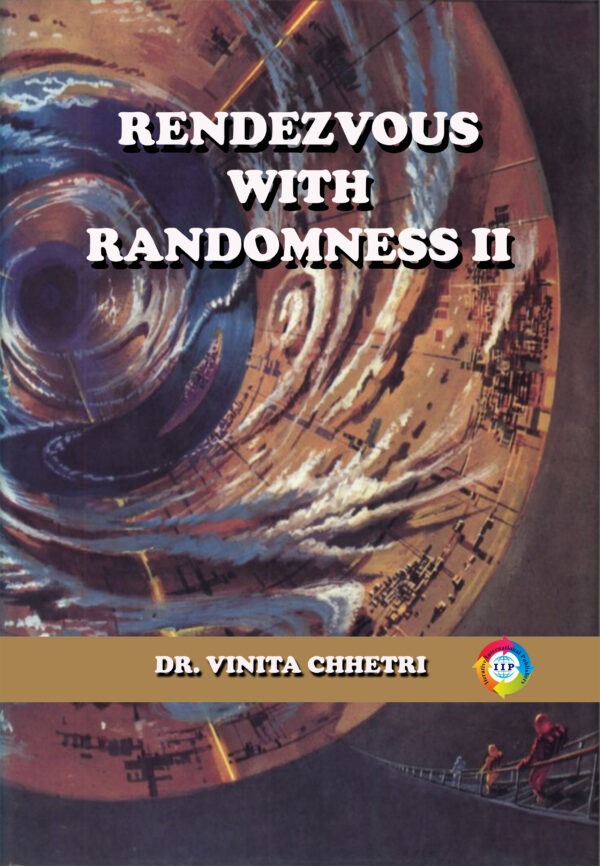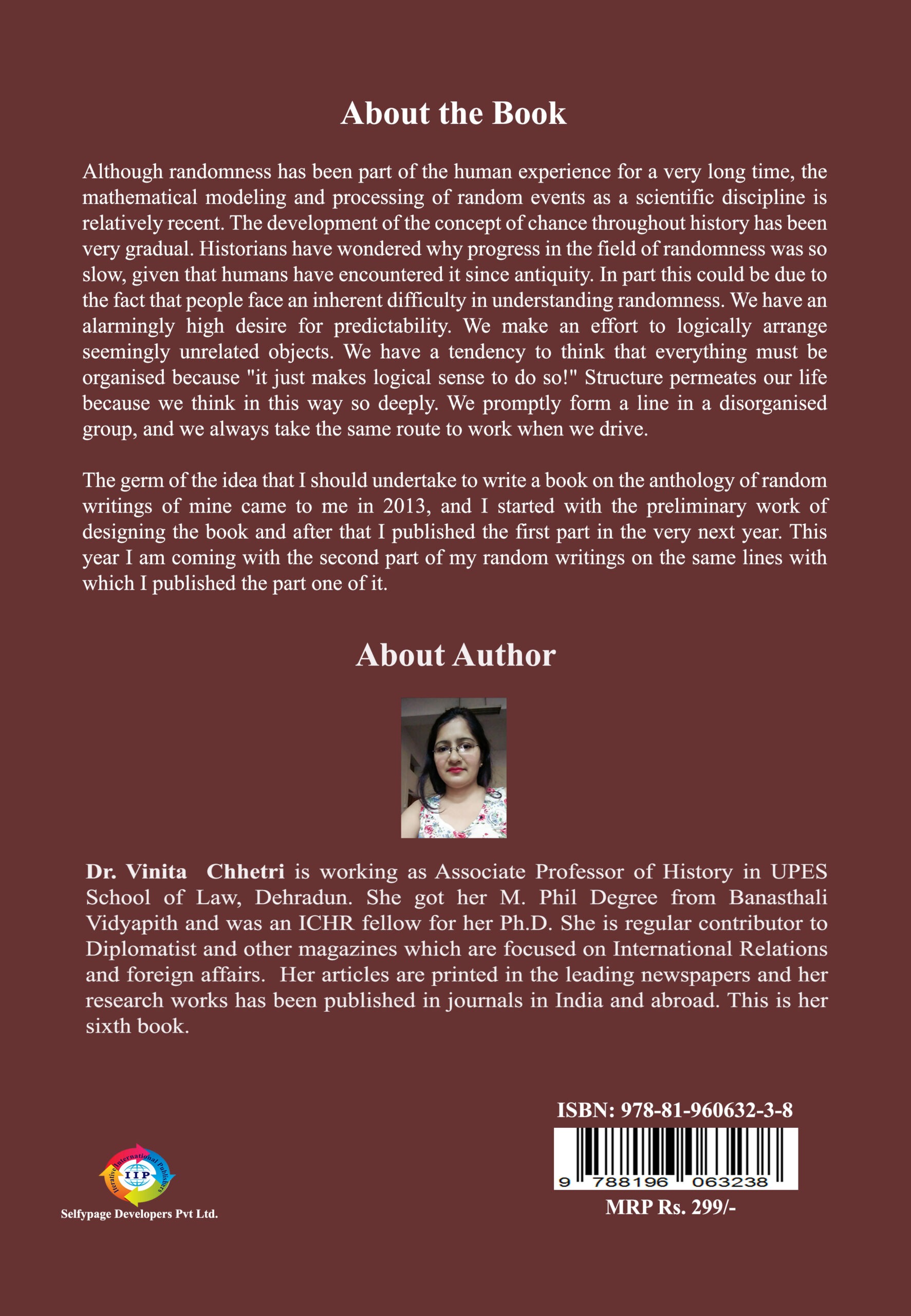Although randomness has been part of the human experience for a very long time, the mathematical modeling and processing of random events as a scientific discipline is relatively recent. The development of the concept of chance throughout history has been very gradual. Historians have wondered why progress in the field of randomness was so slow, given that humans have encountered it since antiquity. In part this could be due to the fact that people face an inherent difficulty in understanding randomness. We have an alarmingly high desire for predictability. We make an effort to logically arrange seemingly unrelated objects. We have a tendency to think that everything must be organised because “it just makes logical sense to do so!” Structure permeates our life because we think in this way so deeply. We promptly form a line in a disorganised group, and we always take the same route to work when we drive. The germ of the idea that I should undertake to write a book on the anthology of random writings of mine came to me in 2013, and I started with the preliminary work of designing the book and after that I published the first part in the very next year. This year I am coming with the second part of my random writings on the same lines with which I published the part one of it.









Reviews
There are no reviews yet.